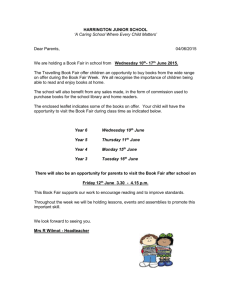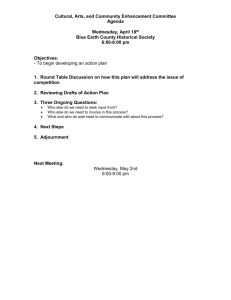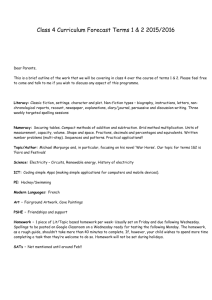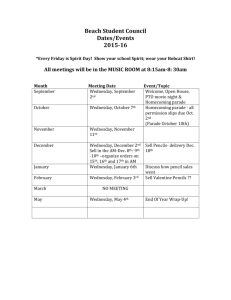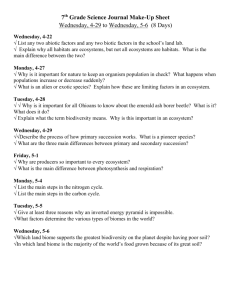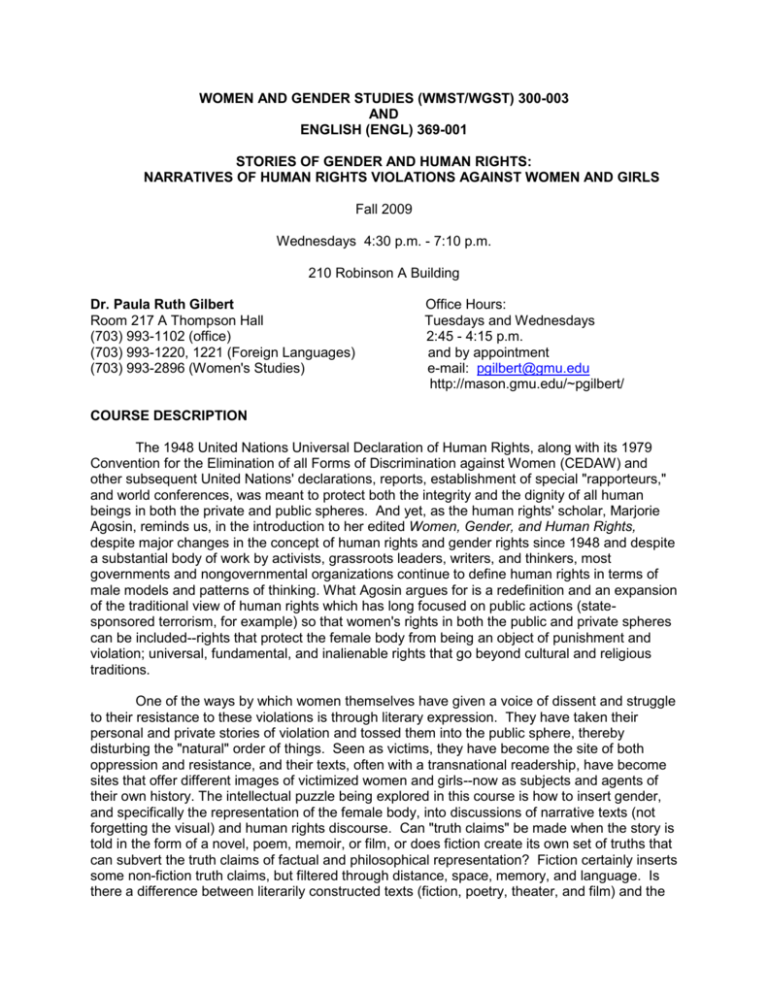
WOMEN AND GENDER STUDIES (WMST/WGST) 300-003
AND
ENGLISH (ENGL) 369-001
STORIES OF GENDER AND HUMAN RIGHTS:
NARRATIVES OF HUMAN RIGHTS VIOLATIONS AGAINST WOMEN AND GIRLS
Fall 2009
Wednesdays 4:30 p.m. - 7:10 p.m.
210 Robinson A Building
Dr. Paula Ruth Gilbert
Room 217 A Thompson Hall
(703) 993-1102 (office)
(703) 993-1220, 1221 (Foreign Languages)
(703) 993-2896 (Women's Studies)
Office Hours:
Tuesdays and Wednesdays
2:45 - 4:15 p.m.
and by appointment
e-mail: pgilbert@gmu.edu
http://mason.gmu.edu/~pgilbert/
COURSE DESCRIPTION
The 1948 United Nations Universal Declaration of Human Rights, along with its 1979
Convention for the Elimination of all Forms of Discrimination against Women (CEDAW) and
other subsequent United Nations' declarations, reports, establishment of special "rapporteurs,"
and world conferences, was meant to protect both the integrity and the dignity of all human
beings in both the private and public spheres. And yet, as the human rights' scholar, Marjorie
Agosin, reminds us, in the introduction to her edited Women, Gender, and Human Rights,
despite major changes in the concept of human rights and gender rights since 1948 and despite
a substantial body of work by activists, grassroots leaders, writers, and thinkers, most
governments and nongovernmental organizations continue to define human rights in terms of
male models and patterns of thinking. What Agosin argues for is a redefinition and an expansion
of the traditional view of human rights which has long focused on public actions (statesponsored terrorism, for example) so that women's rights in both the public and private spheres
can be included--rights that protect the female body from being an object of punishment and
violation; universal, fundamental, and inalienable rights that go beyond cultural and religious
traditions.
One of the ways by which women themselves have given a voice of dissent and struggle
to their resistance to these violations is through literary expression. They have taken their
personal and private stories of violation and tossed them into the public sphere, thereby
disturbing the "natural" order of things. Seen as victims, they have become the site of both
oppression and resistance, and their texts, often with a transnational readership, have become
sites that offer different images of victimized women and girls--now as subjects and agents of
their own history. The intellectual puzzle being explored in this course is how to insert gender,
and specifically the representation of the female body, into discussions of narrative texts (not
forgetting the visual) and human rights discourse. Can "truth claims" be made when the story is
told in the form of a novel, poem, memoir, or film, or does fiction create its own set of truths that
can subvert the truth claims of factual and philosophical representation? Fiction certainly inserts
some non-fiction truth claims, but filtered through distance, space, memory, and language. Is
there a difference between literarily constructed texts (fiction, poetry, theater, and film) and the
constructed stories that find their way into memoirs and testimonies, between texts authored by
women and/about girls rather than by men about women (or about men)? Is there an
advantage to reading about the "poetic" memories of outrages of human rights violations as
opposed to historical accounts and to expressions of violence against women in news and
police reports, oral accounts, and documents produced by human rights organizations?
Ultimately can we and should we bring a gendered perspective by paying attention to the female
body over all bodies in the representation of human rights violations, and if so, why and how?
Do women's experiences connect more powerfully the commonalities of women's status and
global subordination, setting up for us ethical demands, imploring us to commitment and to
action? Of course we can speak of the fact that there are many violations that specifically target
the female body: female genital cutting; female infanticide; sati; honor killings; daughter selling,
dowries, dowry killings; acid burning; foot binding; rape as a spoil of war; slavery; sexual
trafficking. But does this deny the rights of all bodies in pain? The real issue here is not a lack
of recognition of all bodies subjected to human rights violations if we focus on the female body,
but rather what such a gendered approach toward the representation of human and gender
rights violations can tell us, teach us, and how it can help us better understand the intersections
between human rights and narrative discourse.
REQUIRED TEXTS
Parrot, Andrea and Nina Cummings. Forsaken Females: The Global Brutalization of Women.
Lanham, MD.: Rowman & Littlefield Publishers, 2006.
Danticat, Edwige. Breath, Eyes, Memory. New York: Vintage, 1998.
Keller, Nora Okja. Comfort Woman. London: Virago Press, 2001.
Mam, Somaly, with Ruth Marshall. The Road of Lost Innocence: The True Story of a
Cambodian Heroine. New York: Spiegel & Grau, 2008.
Matrubhoomi/A Nation without Women. Manish Jha, dir. Perfs. Tulip Joshi, Sudhir Pandey,
Sushant Singh. Eros International, 2005. [Feature film on reserve in Johnson Center
Library.]
McCormick, Patricia. Sold. New York: Hyperion, 2006.
Nazer, Mende. Slave: My True Story. New York: Public Affairs, 2003.
Souad. Burned Alive: A Survivor of an "Honor Killing" Speaks Out. New York: Warner Books,
2004.
Walker, Alice. Possessing the Secret of Joy. New York: Harcourt Brace Jovanovich, 1992.
[with selections in class from Moolaadé. Ousmane Sembene, dir. New Yorker Films,
2004.]
Water. Deepa Mehta, dir. Perfs. Seema Biswas, Lisa Ray, John Abraham. Fox Searchlight
Pictures, 2006. [Feature film, on reserve in Johnson Center Library.]
COURSE OBJECTIVES
To develop and demonstrate critical thinking skills.
To better one's ability in understanding, reading, and speaking.
To strengthen one's research skills and to use those skills to produce both written work and an
oral presentation.
To become more aware of the serious issues surrounding human rights violations and the
status of women and girls worldwide.
To understand more fully and profoundly the connections between narrative texts and historical
and contemporary issues related to violence against women and girls.
To see connections between learning about these matters and social action.
COURSE POLICIES AND EXPECTATIONS
Attendance and Participation: Much of the value that you will receive from this course will come
from both your course readings and viewings and from your interactions with others. Your
attendance and participation, therefore, are extremely important to the class and your learning
process. Especially since this class meets only once per week, do not miss class!
Assignments: You are expected to complete all assignments on the assigned due date. No late
assignments will be accepted. If you are having difficulties completing an assignment, contact
me in advance.
Honor Code: As a student in this class, you are to follow the provisions of the GMU Honor
Code for all work submitted for a grade.
Plagiarism: Plagiarism means using the exact words, opinions, or factual information from
another person without giving the person credit. Writers give credit through accepted
documentation styles, such as parenthetical citation, footnotes, or endnotes. Paraphrased
material must also be cited, using MLA or APA format (i.e. for this class, MLA format is strongly
preferred). A simple listing of books or articles is not sufficient. Plagiarism is the equivalent of
intellectual robbery and cannot be tolerated in the academic setting. If you have any doubts
about what constitutes plagiarism, please see me.
E-Mail Accounts: It is important to have and use an e-mail account. According to guidelines
established by the University, each student is to access and use her/his GMU e-mail account
when corresponding with me and with other students in a given course. You can have your mail
forwarded from gmu.edu to your current, active account. Although written assignments are to
be handed in both digital form and as a hard copy, e-mail accounts will allow each of you to be
in touch with me and with the others regarding assignments, questions, and discussions.
PLEASE NOTE THE FOLLOWING DATES
Last day to add classes:
15 September 2009
Last day to drop classes:
2 October 2009
Selective withdrawal period: 5 – 30 October 2009
RELEVANT CAMPUS AND ACADEMIC RESOURCES
Disability Support Services: If you are a student with a disability, and you need academic
accommodations, please see me, and contact the Office of Disability resources at 993-2474. All
academic accommodations must be arranged through that office.
Student Technology Assistance and Resources (STAR) Center: Johnson Center 229 / 9938990
Writing Center: Robinson A116; 993-1200
Counseling Center: Student Union 1 (SUB 1), Rm. 364; 993-2380;
www.gmu.edu/departments/csdc
Sexual Assault Services: SUB I, Rms. 219L & 219M; 993-4364; www.gmu.edu/facstaff/sexual
Women’s Studies Research and Resource Center: Johnson Center 240K; 993-2896;
jcweb.gmu.edu/communities/wrc
REQUIREMENTS FOR FINAL GRADE
Class Participation (25% of the final grade):
It is important that students in this class find their own voice. As you will soon learn, I
see this class as collaborative and participatory; we shall all benefit not only from our readings
and viewings, but also from our class discussions to which each of us will bring an individual
perspective. Through class discussions and individual assignments, you will have the
opportunity to discover new perspectives and examine ideas that were previously unchallenged.
Open discussion depends on the development of trust and safety among participants, as well as
risk-taking and effective facilitation. It is, therefore, essential that class members attend all
scheduled classes and participate in class discussions. In addition, I encourage you to aid your
oral participation by bringing to class relevant materials from newspapers and other media
forms. I shall be giving each student a class participation grade approximately 3-4 times during
the semester, and these grades--as all grades--are available for each of you to see. Progress in
class participation throughout the semester will be taken into consideration for your final
participation grade.
Quizzes on Readings and Viewings (10% of the final grade):
The purpose of these announced quizzes is to make sure that you are keeping up with
the reading and viewing assignments and understand the theoretical texts, the novels, the short
stories, and the films. The format will vary from short-answer questions to brief in-class writing.
Oral Presentation on the Texts (25% of the final grade):
We shall be considering each literary and filmic text/narrative in its historical, regional,
social, cultural, traditional, legal, economic, religious, racial, class, age-related, sexual
preference, and gendered contexts. Consequently, oral presentations in this class will be done
as group work. We shall be studying nine different narratives in the form of novels, memoirs,
and films. Each text addresses nine different types of human rights violations against women
and girls. For each narrative, a group of approximately four students will present the
background for the text, dividing up the research as indicated in the listing above (i.e. historical,
regional, social, cultural, and so on). With this background presented to the class, the rest of us
will then move to an analysis and discussion of the given text and its effectiveness in
transmitting to the reader/viewer the particular human rights violation. Each group can present
in any way that they wish: formal presentations; audio-visual; power point. Each presentation
should last approximately 30 minutes. Groups should be formed as soon as possible at the
beginning of the semester, so it is important to read over the names and topics of the
texts/human rights violations and to choose something that particularly interests you. In
addition, group work can be complex and difficult (although also very rewarding), given
individuals’ schedules and work styles. It is incumbent on each member of a group to work
collegially and fully.
Final Research Paper (40% of the final grade):
Each student will choose, research, and write a final research paper of a minimum of 10
pages. Your chosen topic can be an extension of something that we have discussed during the
course of the semester, or it can be a new topic related to a different form of human rights
violations against women and girls. Each paper must also use for its central analysis another
narrative (novel, short story, poem, theater, feature film, documentary, visual arts, performance
art)—that is, a text that we have not discussed during class. This will also be a research paper,
requiring a minimum of five outside sources, in addition to the central text. Please choose this
topic as early as possible in the semester. All topics must be approved in advance. You will be
required to submit an outline of your paper in advance, along with a list of your outside sources.
The outline and list of research sources will be due on 4 November, and the your paper is due
on 2 December.
You can use either MLA or APA format, although MLA format is preferable for this class.
Do not forget to indicate (in parentheses) all page numbers from which you cite directly or
paraphrase. All papers must be typed and corrected for errors in grammar and typing. Each
paper must be double-spaced, using an 11-12 point font, with page numbers, and one-inch
margins. You do not need a cover sheet. Simply start on page 1 (although the first page is not
numbered), and place your name at the top right-hand corner of each page. No folder is
necessary; just staple the pages together. It is absolutely necessary to be consistent in your
citations and documentation. You must follow MLA or APA format for quotations, references,
and Works Cited (MLA)/Bibliography (APA), starting on a separate page. Please use endnotes
for explanatory purposes only, and do not use footnotes with notations such as "Ibid."
Remember that Wikipedia is not considered a critical source, although you can consult that
source for basic information. Similarly any encyclopedia of any sort is not to be considered as
one of your 5/10 outside sources. You are expected to locate and use critical sources:
scholarly monographs; scholarly essays in recognized journals. You may, of course, use the
Internet for critical sources but not exclusively and--be careful--it is often difficult to confirm what
is accurate and what isn't accurate on the Internet. Check with me if you are not sure!
CLASS SCHEDULE AND ASSIGNMENTS
September:
Wednesday 2nd
Welcome to Course
Introductory Remarks on Female Autobiography/
Life-Narratives
Wednesday 9th
Universal Human Rights and the Rights of Women/Girls
Parrot, Andrea and Nina Cummings. Forsaken Females:
The Global Brutalization of Women.
“Preface”; “Cultural Quotes Perpetuating Violence”;
“Part I: Understanding the Context of Violence against
Women: Chapters 1 and 2.” [Other selections from this
text will be assigned throughout the semester]
Selection(s) from human rights/women documentaries
(in class)
Wednesday 16th
Sexual and Political Violence (Haiti):
Danticat, Edwige. Breath, Eyes, Memory.
Parrot, Andrea and Nina Cummings. Forsaken Females:
The Global Brutalization of Women: Chapter 5: “Sexual
Violence.”
Wednesday 23rd
The (Historical) Status of Widows (India)
Water. Deepa Mehta, dir.
Parrot, Andrea and Nina Cummings. Forsaken Females:
The Global Brutalization of Women: Chapter 8: “Intimate
Partner Violence,” pp. 158-64.
Wednesday 30th
Female Genital Cutting (Africa):
Walker, Alice. Possessing the Secret of Joy.
Parrot, Andrea and Nina Cummings. Forsaken Females:
The Global Brutalization of Women: Chapter 4: “Female
Genital Cutting: Clitoridectomy, Female Circumcision,
FGM, or Rite of Passage.”
October:
Wednesday 7th
Female Genital Cutting (continued):
Walker, Alice. Possessing the Secret of Joy.
Selections from Moolaadé. Ousmane Sembene, dir.
(in class)
Wednesday 14th
Female Infanticide (India):
Matrubhoomi/A Nation without Women. Manish Jha, dir.
Parrot, Andrea and Nina Cummings. Forsaken Females:
The Global Brutalization of Women: Chapter 3: “Femicide
Infanticide and Feticide.”
Wednesday 21st
Wartime Rape Camps (Korea/Japan):
Keller, Nora Okja. Comfort Woman
Parrot, Andrea and Nina Cummings. Forsaken Females:
The Global Brutalization of Women: pp. 8-9, 102-06,
125-30.
Wednesday 28th
Wartime Rape Camps (continued):
Keller, Nora Okja. Comfort Woman
November:
Wednesday 4th
Modern-Day Slavery and Sexual Slavery (Sudan):
Nazer, Mende. Slave: My True Story
Parrot, Andrea and Nina Cummings. Forsaken Females:
The Global Brutalization of Women: Chapter 6: “Sexual
Slavery.”
[Outline and list of outside research sources due.]
Wednesday 11th
Modern-Day Slavery and Sexual Slavery (continued):
Nazer, Mende. Slave: My True Story
Wednesday 18th
Sexual Trafficking in Women and Girls (Nepal):
McCormick, Patricia. Sold
Parrot, Andrea and Nina Cummings. Forsaken Females:
The Global Brutalization of Women: Chapter 7:
“Trafficking in Women.”
December:
Wednesday 2nd
Honor Killings and Acid Burning (Palestine):
Souad. Burned Alive: A Survivor of an "Honor Killing"
Speaks Out
Parrot, Andrea and Nina Cummings. Forsaken Females:
The Global Brutalization of Women: Chapter 9: “Honor
Killing”; Chapter 8: “Intimate Partner Violence,” pp. 15758.
[Final papers due]
Wednesday 9th
Sex Trafficking and Activism (Cambodia):
Mam, Somaly, with Ruth Marshall. The Road of Lost
Innocence: The True Story of a Cambodian Heroine
Parrot, Andrea and Nina Cummings. Forsaken Females:
The Global Brutalization of Women: Part III: Chapters
10 and 11.
Wednesday 16th
Final Thoughts and “Reader Survey” (in lieu of a final
exam)

